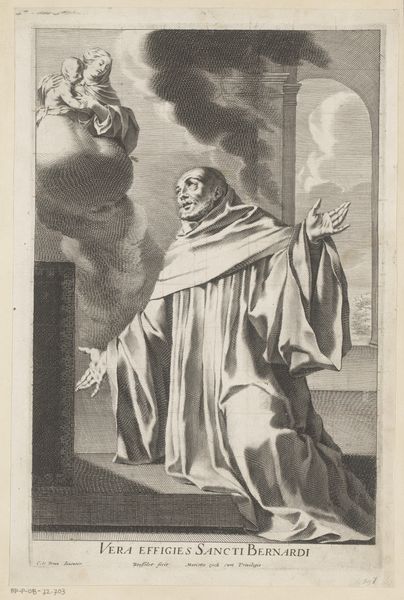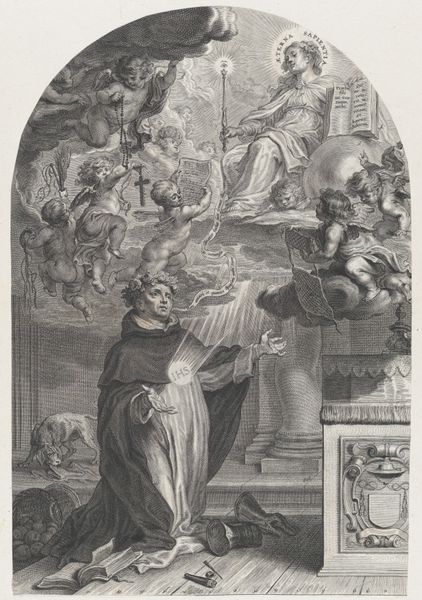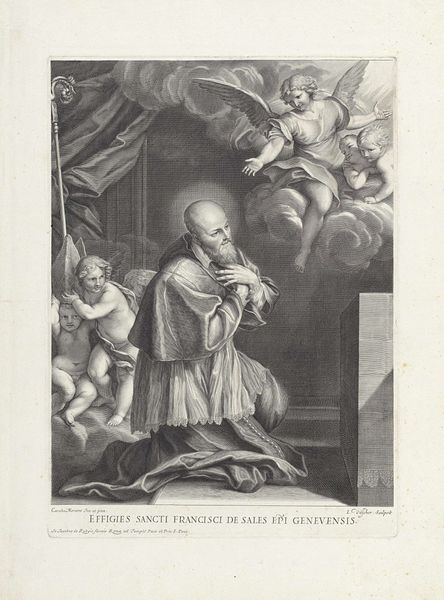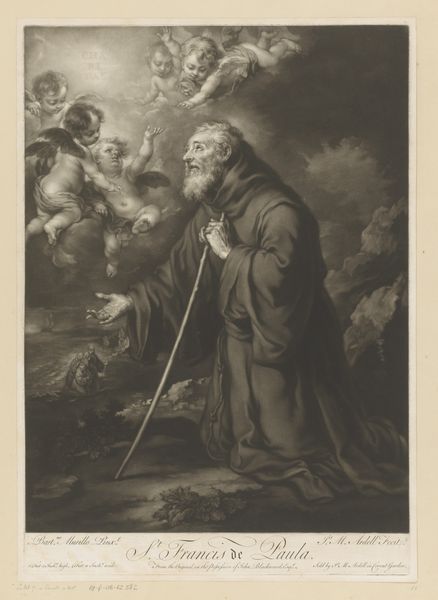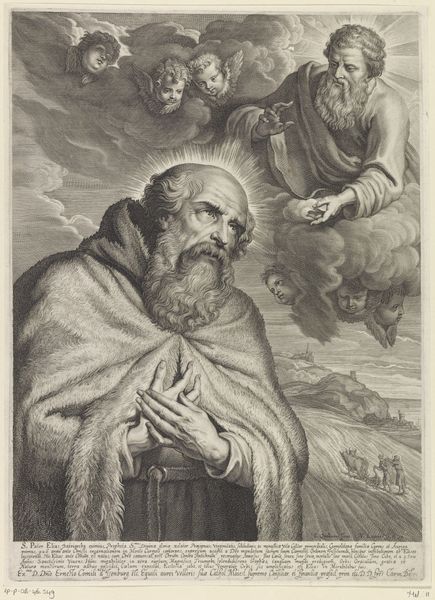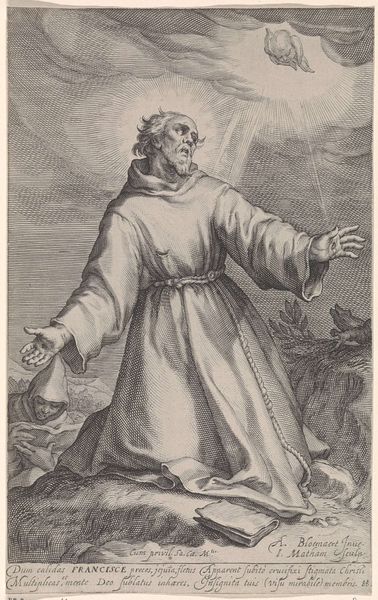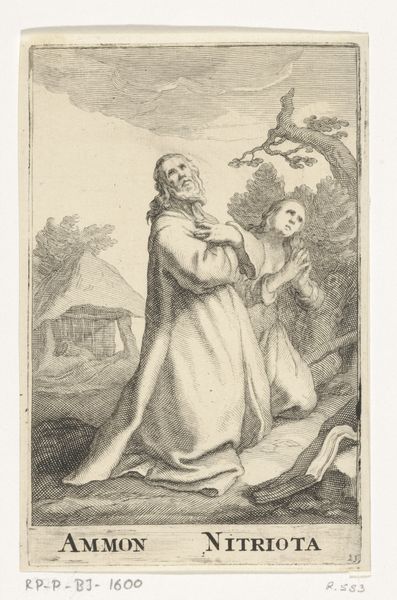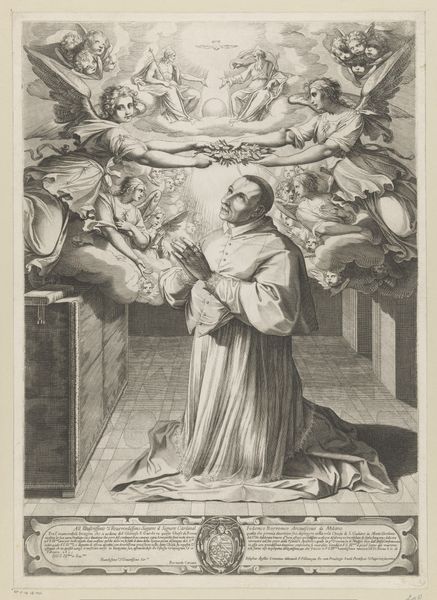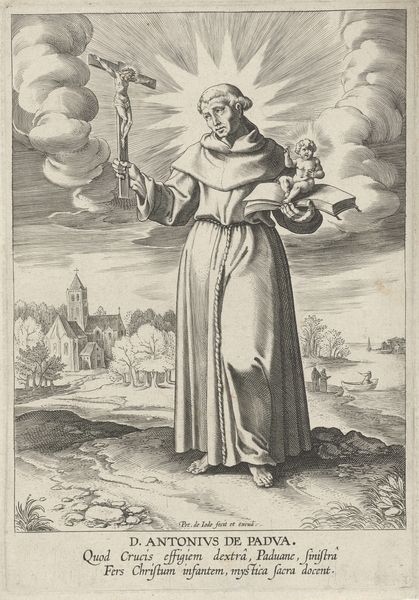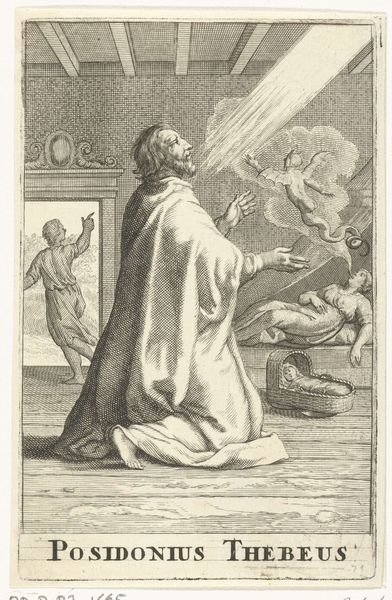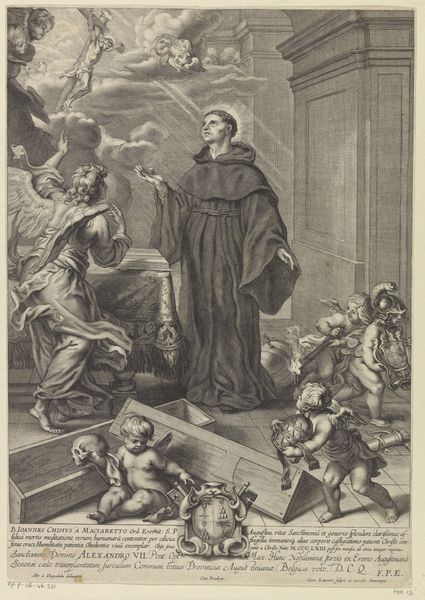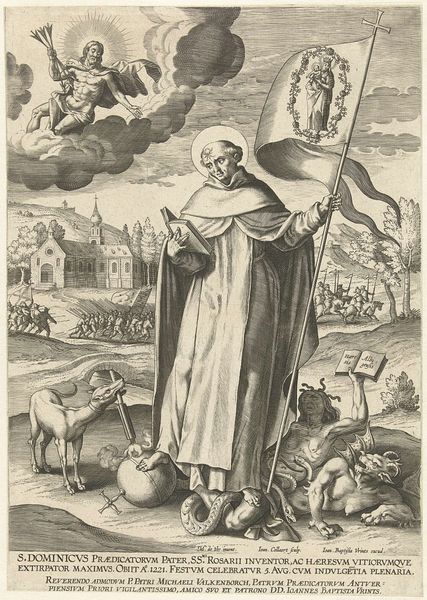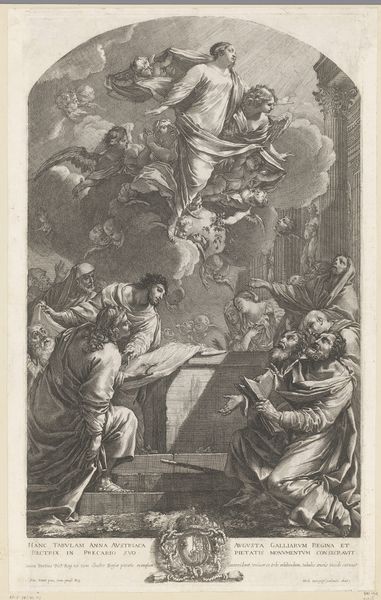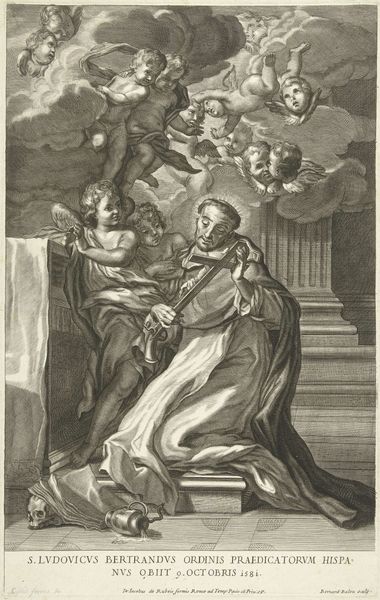
print, engraving
#
portrait
#
baroque
# print
#
figuration
#
history-painting
#
engraving
Dimensions: height 445 mm, width 318 mm
Copyright: Rijks Museum: Open Domain
This print, depicting H. Agabus of Jerusalem adoring Mary, was made by Nicolaes Lauwers. Its lines were engraved into a copper plate, and then transferred to paper using a printing press. The fine lines, tonal gradations, and intricate details required a high level of skill. Engraving is an indirect process. The artist doesn't work directly on the paper, but on the metal, using tools like burins to cut lines into the plate, which are then filled with ink. The pressure of the printing process would have been immense and require physical effort. The choice of printmaking allowed for multiple copies to be made and distributed. This was crucial for disseminating religious imagery, catering to a growing market for devotional art, and reflecting the rising tides of both capitalism and faith. What appears devotional can also be considered a product of its time, a commodity circulating within a complex web of social, economic, and cultural forces. Ultimately, the print stands as a testament to the labor, skill, and social context that shaped its creation.
Comments
No comments
Be the first to comment and join the conversation on the ultimate creative platform.
